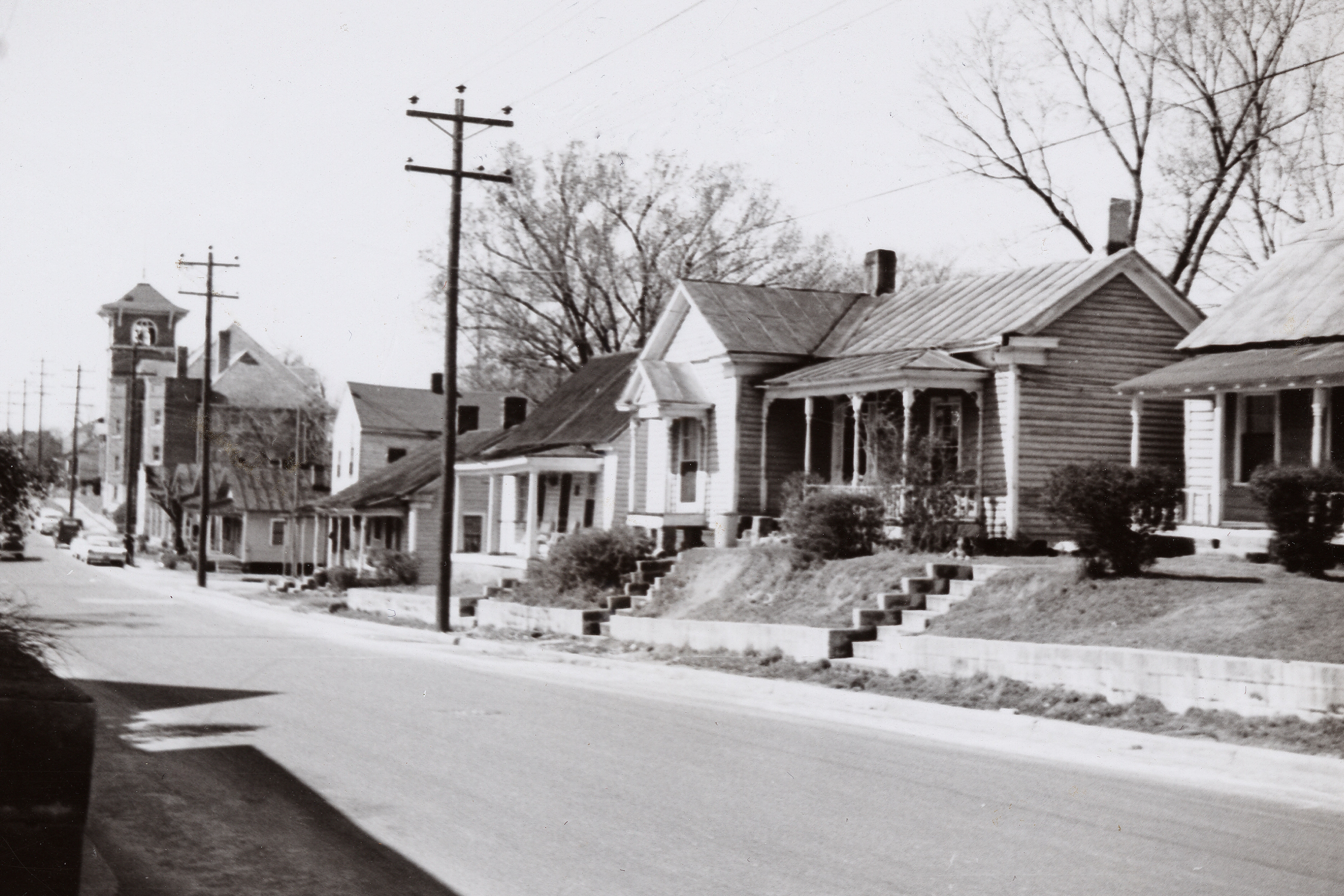Exhibit preserves history of Sycamore Hill community
“Beyond Bricks and Mortar: Revisiting the Sycamore Hill Community,” a photography project that shares the history of the displaced community, has opened at East Carolina University’s Joyner Library.
On display in the Janice Hardison Faulkner gallery through March 26, the exhibit illustrates that a community is much more than the bricks and mortar used to construct its homes. The photographs and narratives featured show how the ties that bind are often found in human connection.
Students, visitors and citizens of Greenville and surrounding areas are invited to visit the exhibit and learn about the predominately African American community that was displaced by a redevelopment project in the 1960s.
According to Joyner Library Director Janice S. Lewis, “The Beyond Bricks and Mortar project furthers the mission of Joyner Library and ECU to celebrate and preserve the life stories, art and images that represent the regional culture of eastern North Carolina. It is particularly timely as the Greenville City Council continues to discuss a planned memorial near the former location of Sycamore Hill Missionary Baptist Church, now part of Town Common. Recent meetings attended by former residents and church members provided an opportunity for us to learn more about the community, its importance, and the need to document its history before more time passes.”
Sycamore Hill Missionary Baptist Church was founded in 1860 and was originally known as the African Baptist Church. The name was changed in the 1880s and referred to the sycamore trees surrounding the church’s location on the corner of First and Greene streets. The large brick church featured in the exhibit’s historical photographs was constructed in 1917 and was a Greenville landmark for half a century. When the Town Common Park was created in the late 1960s, both the church and the vibrant community around it were forced to move.

Houses on West First Street with Sycamore Hill Baptist Church in the background. This area is where Town Commons is now located.
(Photo Contributed by Joyner Library Digital Collections)
“We are honored to help the Sycamore Hill community tell their story and are excited about the possibilities with this project,” said Heather White, assistant director for assessment and engagement at Joyner Library. “It was overwhelming to have such a large participation in the portrait project, which speaks volumes to the strong sense of community and connection this group continues to feel even years later.”
On Dec. 27 and 28, former Sycamore Hill community members and their descendants were photographed as close as possible to the sites of their former homes. Narratives from the former residents and family members about their memories of living in the Sycamore Hill community were collected to accompany the portraits.
Historical images of Sycamore Hill Baptist Church and the surrounding neighborhood from the Joyner Library Digital Collection are also included in the exhibition.
Amber Nannette Harris, who participated with her father in the project, said, “Listening to these stories is a scar for me too. These sacred grounds will forever be home in our hearts,” said Harris. “This acknowledgment is a start of a healing process.”
A public celebration honoring the Sycamore Hill community and recognizing participants in the project will be held 5-8 p.m., March 3 in the Janice Hardison Faulkner Gallery in Joyner Library. The celebration will include a short program at 5:15 p.m. and will be a part of the First Friday Artwalk series with shuttle service by the Jolly Trolley.
After the exhibit closes, the images will be preserved and will continue to be available online as part of Joyner Library’s Digital Collections. The library hopes this project will be the seed for more extensive outreach and collection of regional history, including the history of communities that have been underrepresented in archival collections.
Joyner Library will also hold a Community Scanning Day on March 4 from 9 a.m. until 1 p.m. at the Sycamore Hill Missionary Baptist Church, 1001 Hooker Road, Greenville.
If you have historical photographs of the Greenville area or related items that you would like to have scanned, please contact Charlotte Fitz Daniels at fitzdanielsc16@ecu.edu or 252 328-0287.
-by Kelly Rogers Dilda, Joyner Library